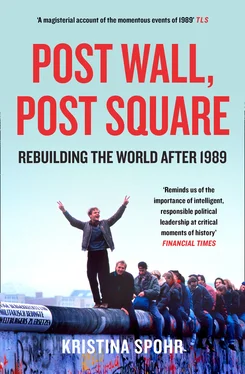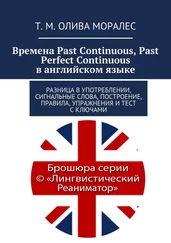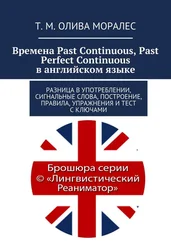Bush also set out the terms on which the USSR would be welcomed back ‘into the world order’. Fine rhetoric from Gorbachev was not sufficient – ‘promises are never enough’. The Kremlin must take some concrete ‘positive steps’. Top of the list were to reduce Soviet forces (proportionate to legitimate security needs), provide support for self-determination, ‘tear down the Iron Curtain’ and find diplomatic solutions with the West to resolve regional disputes around the world, such as in Afghanistan, Angola and Nicaragua. Taking these steps would make possible a qualitatively new relationship between the two superpowers.[91]
And yet, as Bush admitted, Soviet military capabilities remained ‘awesome’. So deterrence still remained vital and this demanded a strong NATO – the theme of Bush’s speech on 24 May in New London, Connecticut, to the US Coast Guard Academy. There he outlined future US military strategy and arms-control policy for the next decade. ‘Our policy is to seize every – and I mean every – opportunity to build a better, more stable relationship with the Soviet Union, just as it is our policy to defend American interests in light of the enduring reality of Soviet military power.’ He acknowledged that, ‘amidst the many challenges we’ll face, there will be risks. But let me assure you, we’ll find more than our share of opportunities … There’s an opportunity before us to shape a new world.’
A new world was possible because ‘we are witnessing the end of an idea: the final chapter of the communist experiment. Communism is now recognised … as a failed system … But the eclipse of communism is only one half of the story of our time. The other is the ascendancy of the democratic idea’ – evident across the world from trade unionists in Warsaw to students in Beijing. ‘Even as we speak today,’ he told the young American graduands, ‘the world is transfixed by the dramatic events in Tiananmen Square. Everywhere, those voices are speaking the language of democracy and freedom.’[92]
The Coast Guard speech completed Bush’s public exposition of his administration’s new strategy toward the European cockpit of East–West relations ahead of the NATO summit in Brussels on 30 May.[93] His visionary statements about peace and freedom, about global free markets and a community of democracies, give the lie to later claims that his foreign policy was aimless, merely reactive and ‘too unwilling to move in untested waters’. Above all, he was repeatedly emphasising the place of US leadership in the world and asserting what the administration regularly referred to as the ‘common values of the West’.[94] As Bush had said in that scene-setting cameo on Governors Island, he intended to take his time and act prudently in an era when the fundamentals of international relations had been shaken as never before since 1945. ‘Prudence’ would indeed remain a watchword of Bush’s diplomacy but this did not preclude vision and hope. Those speeches of April and May 1989 – often neglected by commentators amid the dramas of the second half of the year – make the ambition of his foreign policy abundantly clear.
But converting ambition into achievement was a different challenge. And his first test was particularly demanding. The NATO summit in Brussels was unusually high profile because it coincided with the fortieth anniversary of the Atlantic Alliance and because it was imperative to come up with an eye-catching response to the potpourri of dramatic arms-reduction proposals Gorbachev had tossed out in his UN speech. To make matters worse, NATO governments had been unable to agree in advance on a joint position, mainly because of fundamental disputes about short-range nuclear forces (SNFs) – those with a range of less than 500 kilometres. And, at a less visible level, the arguments surrounding the NATO summit may be seen as marking a subtle but significant shift in America’s alliance priorities in Western Europe – away from Great Britain and towards West Germany.[95]
Britain, represented by Prime Minister Margaret Thatcher – the notorious ‘Iron Lady’ – demanded rapid implementation of a 1985 NATO agreement to modernise its SNFs (eighty-eight Lance missile launchers and some 700 warheads). Her fixation was with their deterrent value and NATO’s defensibility. The coalition government of West Germany, where most of these missiles were stationed, instead pressed the USA to pursue negotiations on SNF reduction with the Soviet Union, building on the success of the superpower 1987 treaty to eliminate all their intermediate nuclear forces (INFs) worldwide. Foreign Minister Hans-Dietrich Genscher – leader of the junior coalition partner the Free Democrats (FDP) – even lobbied, like Gorbachev, for the total abolition of SNFs. This was known as the ‘third zero’ – building on the ‘double zero’ agreement for the abolition of INFs in Europe and Asia. For Thatcher, relatively secure in her island kingdom, these weapons were an instrument of military strategy but for Genscher and for the German left they were a matter of life or death, because Germany would be the inevitable epicentre of a European war. Kohl considered Genscher’s position as far too extreme but he not only needed to appease his coalition partner and calm the domestic public mood by supporting some kind of arms-reduction talks, he also had to navigate around ‘that woman’, as he called Thatcher, and keep the Alliance strong.[96]
Both the British and the Germans had been manoeuvring ahead of the summit. Thatcher met Gorbachev on 6 April in London. On a human level, the two of them had got on famously ever since their first encounter in December 1984, before he became general secretary, when she proclaimed that Gorbachev was a man with whom she could ‘do business’.[97] At their meeting in 1989 the personal chemistry was equally evident but so were their fundamental differences on nuclear policy. Gorbachev launched into a passionate speech in favour of nuclear abolition and ‘a nuclear-free Europe’ – which Thatcher totally rejected – and he vented his frustrations with Bush for not responding more positively to his disarmament initiatives. The prime minister, playing her preferred role as elder stateswoman, was at pains to reassure him: ‘Bush is a very different person from Reagan. Reagan was an idealist who firmly defended his convictions … Bush is a more balanced person, he gives more attention to detail than Reagan did. But as a whole, he will continue the Reagan line, including on Soviet–American relations. He will strive to achieve agreements that are in our common interest.’
Gorbachev jumped on those last words: ‘That is the question – in our common interests or in your Western interests?’ The reply came back: ‘I am convinced in the common interest.’ Her subtext was clearly that she was the one who could broker the relationship between the two superpowers.[98]
Privately, however, Thatcher was worried about the new US president. She had developed a close, if sometimes manipulative, rapport with ‘Ronnie’ and had felt secure about the centrality of the much-vaunted Anglo-American ‘special relationship’ in US foreign policy.[99] With Bush, the situation was less clear. It appeared that the new administration’s ‘pause’ also entailed a review of relations with Britain. And she felt that the State Department under Baker was biased against her and inclined to favour Bonn rather than London.[100] Her suspicions were not unfounded. Bush, a pragmatist, disliked Thatcher’s dogmatism and certainly did not intend to let her run the Alliance. Both he and Baker found her difficult to get on with, whereas Kohl seemed an agreeable partner.[101]
The problem in Bonn was not on the personal level but the political, because of the deep rift within the coalition. In several phone conversations during April and May, Kohl tried to reassure Bush of his loyalty to the transatlantic partnership and that he would not let the SNF issue ruin the summit. His language was almost desperate – a point not concealed even in the official American ‘telcon’ record of their talks. ‘He wanted the summit to be successful … He wanted the president to have a success. It would be the president’s first trip to Europe as president. The president was a proven friend of Europeans and, in particular, of the Germans.’[102]
Читать дальше












